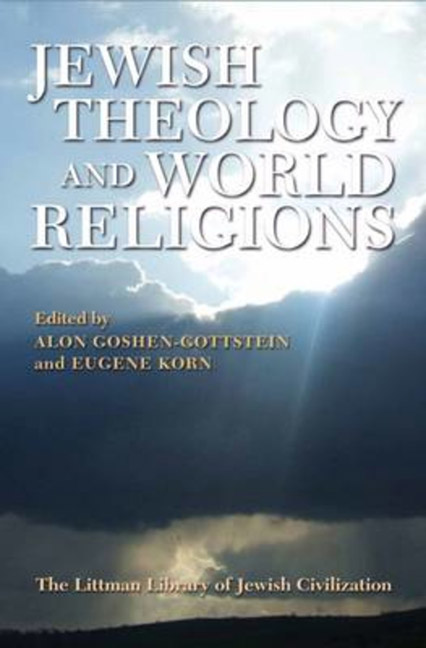Book contents
- Frontmatter
- Dedication
- Preface
- Contents
- Note on Transliteration
- Towards a Jewish Theology of World Religions: Framing the Issues
- PART I PHILOSOPHICAL PERSPECTIVES ON JEWISH PLURALISM
- PART II JUDAISM AND THE OTHER
- PART III JUDAISM AND WORLD RELIGIONS
- 8 Rethinking Christianity: Rabbinic Positions and Possibilities
- 9 Maimonides’ Treatment of Christianity and its Normative Implications
- 10 The Banished Brother: Islam in Jewish Thought and Faith
- 11 Encountering Hinduism: Thinking Through Avodah Zarah
- 12 Judaism and Buddhism: A Jewish Approach to a Godless Religion
- Concluding Reflections
- Notes on the Contributors
- Index
10 - The Banished Brother: Islam in Jewish Thought and Faith
from PART III - JUDAISM AND WORLD RELIGIONS
- Frontmatter
- Dedication
- Preface
- Contents
- Note on Transliteration
- Towards a Jewish Theology of World Religions: Framing the Issues
- PART I PHILOSOPHICAL PERSPECTIVES ON JEWISH PLURALISM
- PART II JUDAISM AND THE OTHER
- PART III JUDAISM AND WORLD RELIGIONS
- 8 Rethinking Christianity: Rabbinic Positions and Possibilities
- 9 Maimonides’ Treatment of Christianity and its Normative Implications
- 10 The Banished Brother: Islam in Jewish Thought and Faith
- 11 Encountering Hinduism: Thinking Through Avodah Zarah
- 12 Judaism and Buddhism: A Jewish Approach to a Godless Religion
- Concluding Reflections
- Notes on the Contributors
- Index
Summary
Menahem Mendel, the Silent Tsadiq of Warka,
thus explained the verse:
‘God heard the voice of the child’ [Gen. 21: 17]:
‘Yet the Torah records neither a sound nor even a word of Ishmael.
Therefore he must have made a silent and mute cry.’
This indeed was his ownmode of worship.
MORDECAI LEVI, Gedulat mordekhai
NO CULTURAL encounter can be said to have contributed as much to the shaping of Judaism over the past millennium as that of Israel and Islam. Indeed, the rise of the Crescent began a crucial period in the development of Jewish civilization that has left an abiding mark on all subsequent generations in the areas of literary, legal, and intellectual activity. Historically the religion of the Quran was initially inspired by its biblical forerunner, but it gradually outgrew its parent faith. Although it was tacitly accepted, Islam's ensuing cultural ascendancy was never openly recognized by the Sages of Israel, who continued to oscillate between attitudes of refusal and receptivity towards the new religion.
In a certain sense this dialectic movement was dictated by the midrashic portrayal of the biblical Ishmael, who was later to become the traditional eponym of the Arabs in medieval Jewish literature. Ishmael is one of the few biblical figures of whom no spoken word is reported, while his name means ‘hearing’ (Heb.: yishma, ‘shall hear’, el, ‘God’). In the Midrash he is given as an example of ‘one whose name was fair but whose deeds were foul … his name implies “he hearkens to God” but he does not hearken’. This statement set the tone for subsequent Jewish perceptions of Muslim otherness: outwardly Islam has nothing to say, its religious discourse is devoid of any authenticity; yet inwardly the Islamic message is full of eloquence for one who knows how to listen.
It is perhaps because the Ishmaelites were nomads that they came to be identified in rabbinic literature with the ancestors of the Arabs, although there is no historical basis for this association. So strong was this identification by the time of Muhammad that the Muslim prophet designates Ishmael as the founder of the Arab sanctuary at Mecca and calls Jesus ‘Isa’; that is, Esau, the traditional ancestor of Christendom.
- Type
- Chapter
- Information
- Jewish Theology and World Religions , pp. 235 - 262Publisher: Liverpool University PressPrint publication year: 2012

